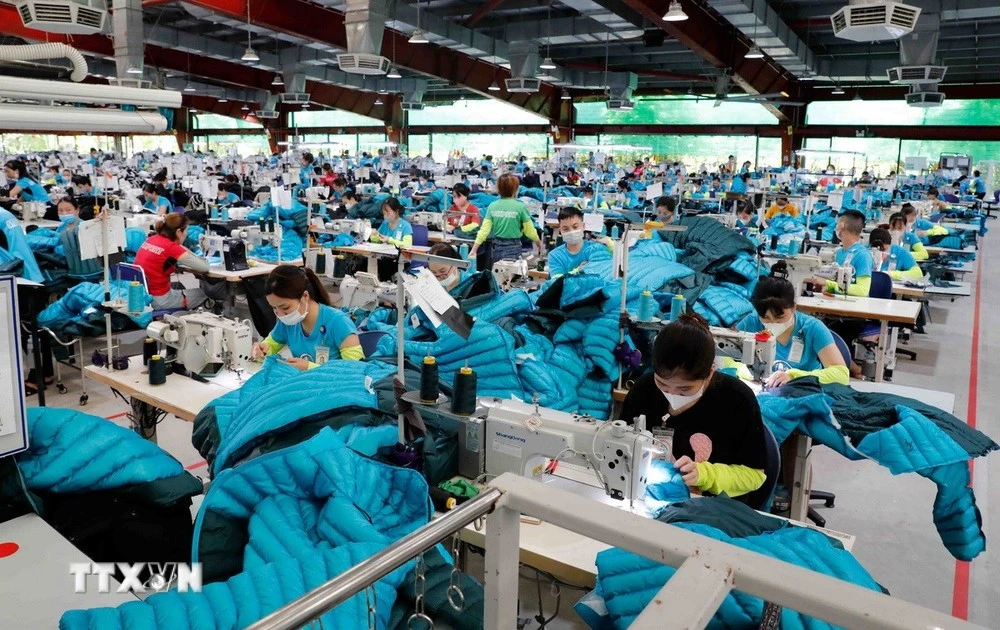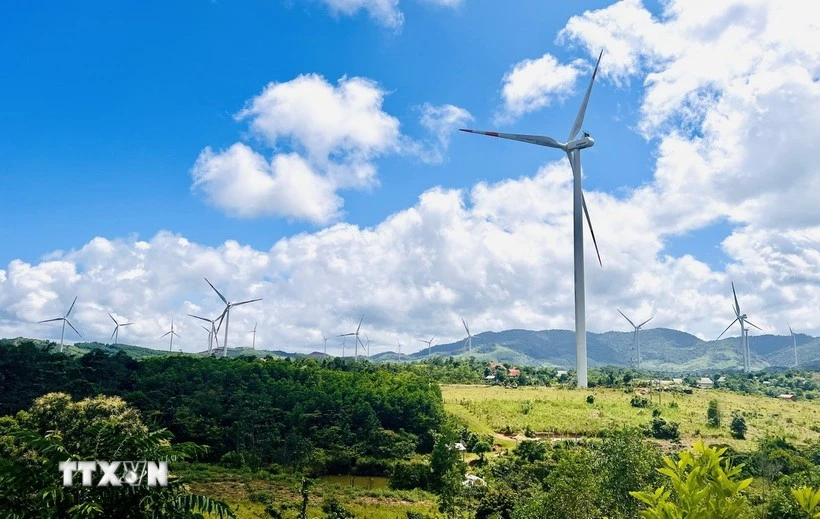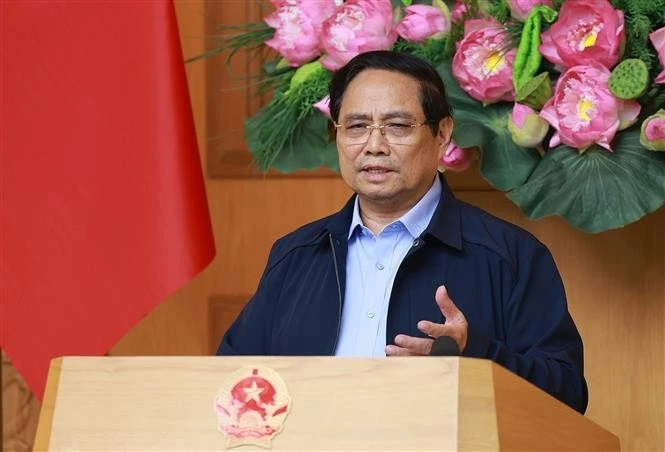Moving towards the era of digital industry, AI technology, and green economy
On March 19, in Hanoi, at the seminar “Investment opportunities in the new context,” Dr Le Xuan Nghia, a member of the National Monetary Policy Advisory Council, presented his analysis, highlighting four distinct trends that are expected to emerge in the global context in the coming time.
The first trend is that governments and private corporations invest in new-generation chip technology and AI technology, with unprecedented volumes. For example, the U.S. has two investment packages totalling over $1 trillion for chips and AI. China has invested more than $1 trillion in this field as well and Japan has three government investment packages worth hundreds of billions of dollars. Notably, these are all government investments, not counting investments from the private sector. This will create a new generation of technology, a new industrial era, and a breakthrough in the global economy.
The second trend, despite President Trump’s administration declaring that the U.S. would withdraw from the Paris Climate Agreement, removing the largest emitter of greenhouse gases from global efforts to combat climate change, Europe and even businesses within the U.S. continue to follow the green transition trend. They still produce ESG reports, reduce greenhouse gas emissions for branding purposes, and convince consumers to dominate the market.
The third trend is that many countries are implementing administrative reforms with the slogan of transitioning from a bureaucratic industrial government to a digital government.
The fourth trend is fair trade (also known as trade wars).
According to Dr Nghia, these four trends will strongly impact the global economy, causing global economic growth to decrease by about 1% (some forecasts estimate around 0.5%) and inflation could increase by around 0.5%. Global trade is expected to drop by about 0.3%, and the USD Index could fall sharply from 107 to 103. Thus, Vietnam and the world is also entering a new era based on digital industry, AI technology, and a green economy. These will be major trends that could trigger a leap in global economic and trade development in the future.
For Vietnam, by 2025, global inflation may still be relatively high, meaning the prices of some imported goods into Vietnam may rise (excluding fuel). This could create inflationary pressure in the country. However, the USD could continue to depreciate, which would alleviate inflationary pressures through reduced import prices. Therefore, the exchange rate between the VND and USD is expected to remain relatively stable. With this foundation, if flexible and reasonable monetary policy tools are applied, Vietnam can maintain interest rates and inflation stability as in 2024.
 |
| Digital Technology and Smart Devices are Attracting Consumers Photo: BAC SON |
Where should we invest?
In this context, Dr Nghia emphasised that investments should be carefully calculated, as there are significant profit opportunities but also high risks. He stated that long-term investments should be prioritised, and investors should be cautious of following market trends, as this is when capital needs a safe haven.
Dr Can Van Luc, Chief Economist at BIDV, also highlighted that the risks in the corporate bond market are still present, and the real estate market is recovering slowly with high prices. Additionally, the development of new laws and institutions for emerging fields (digital economy, green economy, circular economy, energy transition, etc.) is still slow. Meanwhile, the revolution of streamlining organisations and apparatus faces certain challenges. Therefore, in the face of both global and domestic situations, investors need to clearly understand their risk appetite, diversify investments, avoid herd mentality, and improve their understanding of macroeconomic conditions, as well as external and internal factors.
In his detailed analysis of investment channels, Dr Luc stated that savings accounts would still be a safe investment option. However, given that deposit interest rates are stable or only slightly increasing, investors, depending on their risk appetite, may consider reducing the proportion of savings deposits to shift to higher-yield channels.
The Vietnamese stock market is attracting many investors domestically and internationally, with the prospect of an upgrade becoming clearer after many efforts from the Government. If the stock market is upgraded to an emerging market in 2025, the most significant impact would be that Vietnam's stock market would attract larger, more stable, and diverse foreign investment flows. According to BSC's estimates, around $1.5 billion from foreign investment funds will flow into the market. Therefore, the stock market is expected to show positive growth results (possibly higher than in 2024) and is an investment channel worth considering.
The bond market is expected to continue recovering well. However, with new regulations in the amended Securities Law, the ability of individual investors to buy corporate bonds (which currently account for 90% of the total issuance) will be more restricted. To purchase corporate bonds, individual investors must be professional investors, and the bonds must have a credit rating, asset collateral or a payment guarantee from a credit institution.
"At this moment, this investment channel is more suitable for investors with knowledge of the financial market and the ability to analyse the operational situation of businesses or invest through institutional investors. Individual investors who lack in-depth financial knowledge or have limited investment experience should consider using institutional investors (such as investment funds). Most of the funds in 2024 had positive results, and the positive outlook for the stock market in 2025 provides a basis for this trend to continue," Dr Luc concluded.
In 2025, the real estate market is likely to recover favourably thanks to several supporting factors. These include the implementation of important new laws and policies related to land, real estate, and construction (2024 Land Law, 2023 Housing Law, 2023 Real Estate Business Law, resolutions to address difficulties in the land and real estate sectors, and special mechanisms for some provinces and cities), the focus on infrastructure investment, social housing, industrial parks, etc., and increased housing supply. However, real estate prices are relatively high and may need to adjust more reasonably in 2025. Overall, the potential yield from this market may be more favourable or equivalent to 2024.
As for the gold market, in the context of global economic risks and instability, gold remains an attractive investment channel, which affects gold prices globally and in Vietnam. However, the Government and the State Bank of Vietnam will implement measures to control and stabilise the gold market more effectively. Therefore, although gold remains a safe investment channel, the yield from gold is likely to be lower than in 2024.
















